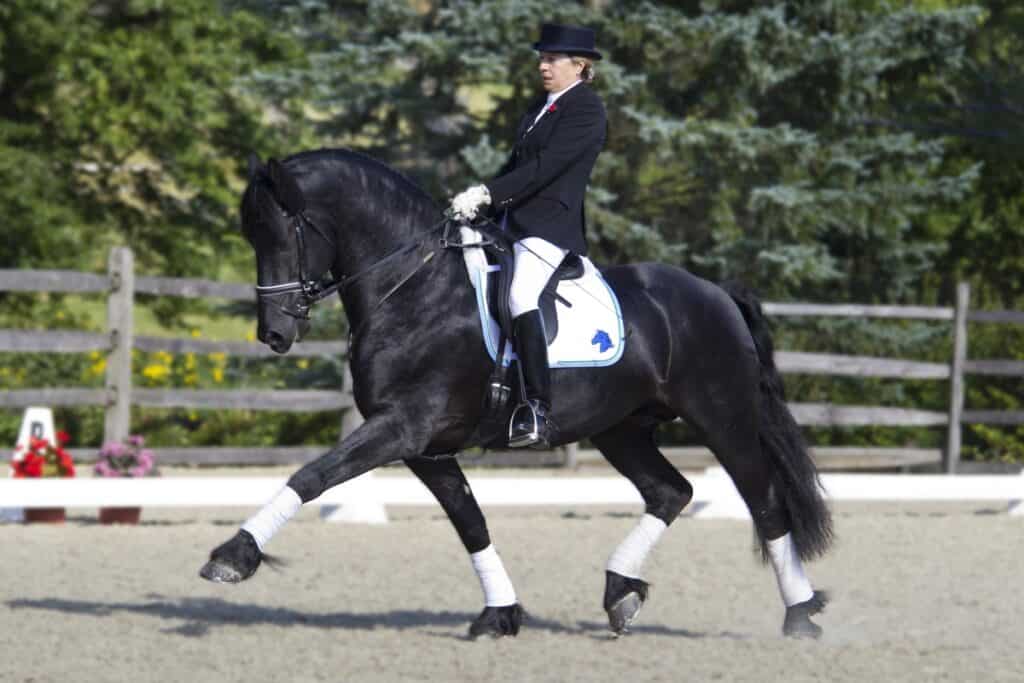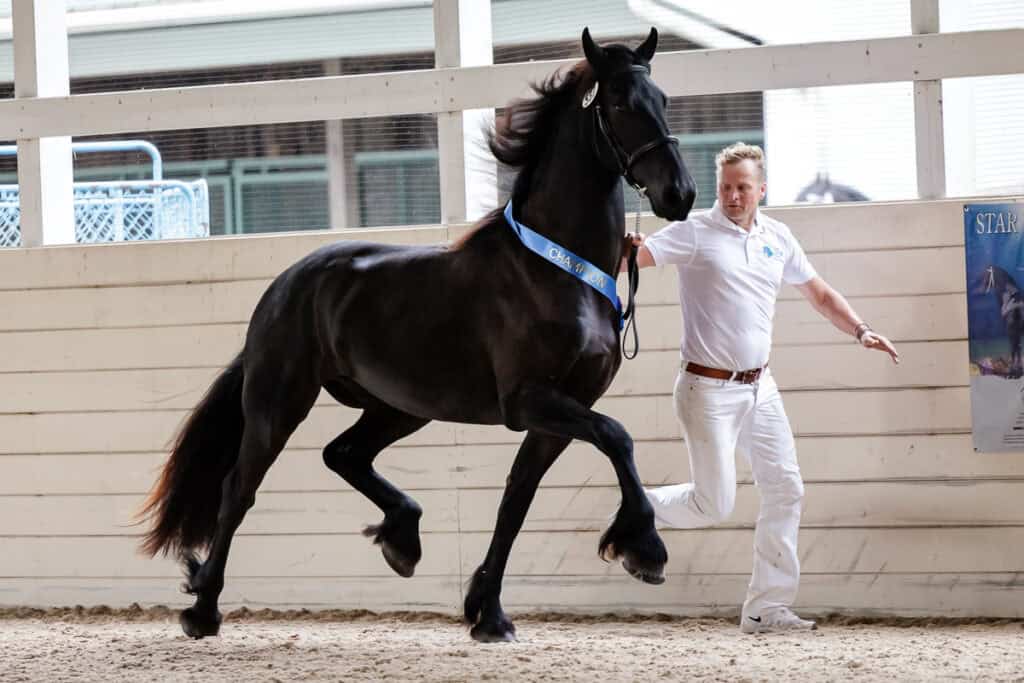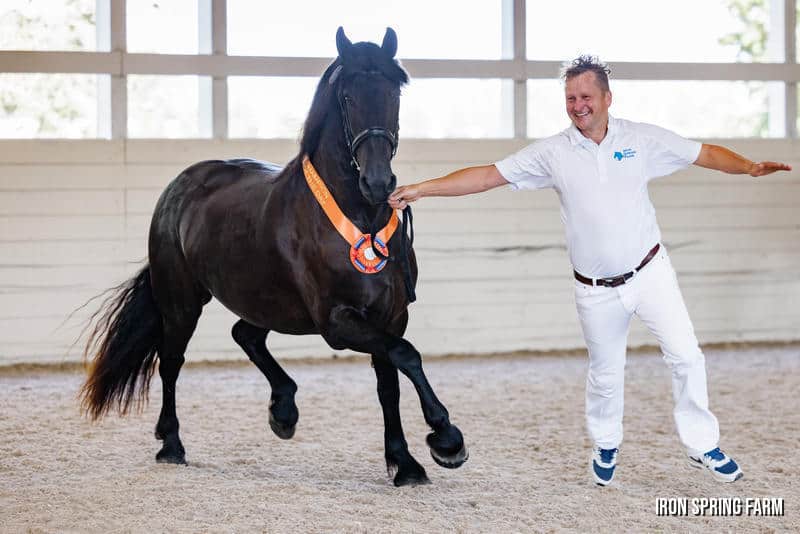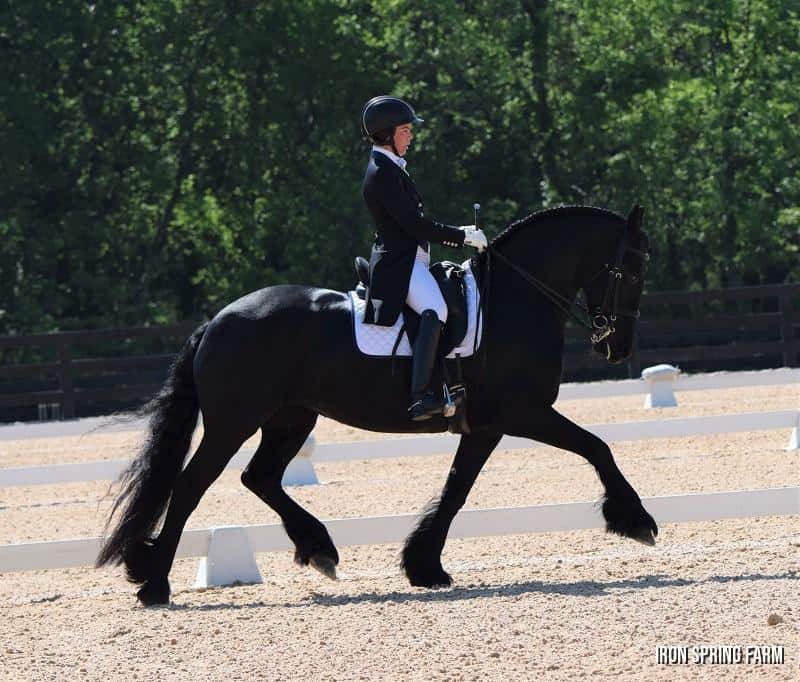Are you having trouble getting your normally fertile mare in foal? Pituitary pars intermedia dysfunction (PPID), commonly known as Cushing’s Disease, might be to blame. While PPID is often associated with older horses, this disorder can cause fertility problems in mares as young as seven years old.
What is PPID?
PPID is a result of the disruption of the hormone pathways in the brain. According to UC Davis, the release of hormones from the pituitary gland is normally controlled by the hypothalamus through the neurotransmitter dopamine. With PPID, there is an inability to control the hormones produced by the middle lobe of the pituitary gland (pars intermedia). High levels of these hormones affect processes throughout the body.
While some horses with PPID may have long, curly hair that doesn’t shed, a pot belly, loss of muscle tone, reduced performance ability or sore feet, a horse impacted by PPID may have none of these obvious symptoms. The disorder can also dysregulate the immune system, making a horse prone to infections, abscesses and parasites. In addition, insulin resistance can accompany PPID.
Indicators of PPID in broodmares include a lack of pregnancy in historically fertile mares, as well as difficulty maintaining pregnancy.
Stay on Top of Your Horse’s Health
At ISF, we handle our mares daily and monitor their condition and overall health. To be on top of any symptoms of PPID, we assess changes to coat, regularity of heat cycles, fertility, as well as any foot soreness in spring and fall when grass sugar tends to be high.
To keep our horses as healthy as possible, we focus on good nutrition, a healthy body condition score (BCS) and use a grazing muzzle to limit calorie intake, as needed. We work closely with our veterinarian to create a comprehensive, personalized health program for each horse. If we notice any symptoms indicative of PPID, our veterinarian will perform an exam and further testing, if necessary.
There are two types of tests used to diagnose PPID. The simplest measures a baseline of adrenocorticotropic hormone (ACTH) and compares the horse’s level against reference ranges. This test is more accurate for moderate or advanced cases of PPID rather than for younger mares who might be experiencing their first symptoms.
A second test, thyrotropin releasing hormone (TRH) stimulation test, can be performed if the first test is inconclusive.
If a horse is diagnosed with PPID, there are a range of options for managing symptoms, such as optimizing a good nutrition plan, preventive health care and maintaining a healthy BCS. Another way to support horses with PPID is Prascend, a daily medication prescribed by a veterinarian.
If you’re struggling to get your mare pregnant, don’t overlook PPID as a possible cause. As in every other aspect of your horse’s health, working closely with your veterinarian is the key to success.
Disclaimer:
All content provided by Iron Spring Farm is general and for informational purposes only. Content may also not constitute the most up to date information. Nothing in this content is intended to constitute veterinarian advice or to serve as a substitute for consultation with a veterinarian. Always seek the advice of your veterinarian or other qualified provider with any questions that you may have about the treatment and care of your horse.
Any reliance that you place on the information provided is strictly at your own risk and Iron Spring Farm, its officers, employees, representatives, and agents, hereby disclaim any and all liability to any party for any direct, indirect, implied, punitive, special, incidental, consequential or other damages arising directly or indirectly from access to or use of any content provided to the maximum extent permitted by law.










